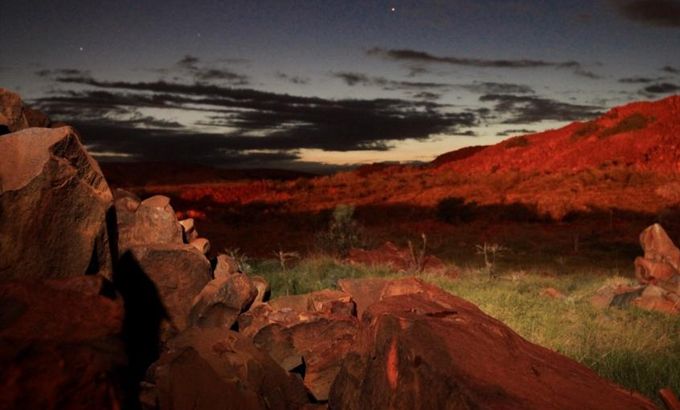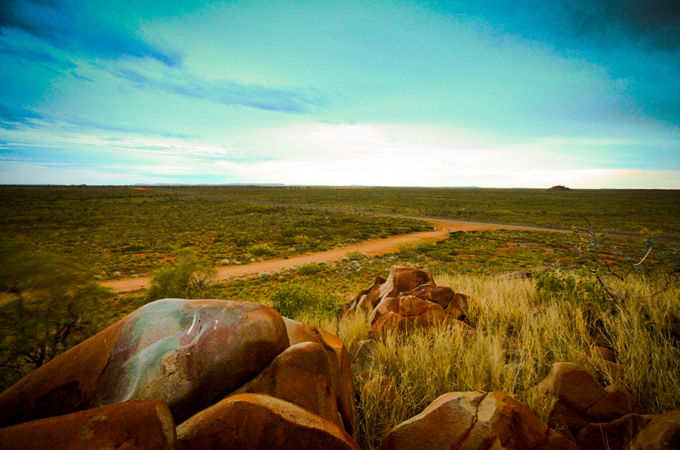
Australia’s boomtown curse
Natural resources are powering Australia’s economy to record highs, but is there a dark side to the mining boom?
Keep reading
list of 4 itemsCanada wildfires spur evacuation orders, warnings: What you need to know
Evacuation orders issued as wildfire grows near Canada’s Alberta oil patch
Energy summit seeks to curb cooking habits that kill millions every year
Australia is blessed with rugged beauty and a wealth of natural resources – including coal, iron, natural gas and gold. Such minerals are powering Australia’s economy to record highs. And as demand from China for more resources grows, new mines continue to open across the country. But critics say there is a dark side to this success story. Mining regions attract transient workers keen to make a quick buck, creating social and environmental problems and a rising crime rate. Mines are also draining Australia’s pool of skilled labour from other industries and driving up wages. 101 East asks: What is the cost of Australia’s mining boom?
Here Australian 101 East fixer Sian Gard takes us behind the scenes of the 12-day film shoot with reporter-producer Chan Tau Chou and cameraman Lee Ali.
When you travel what is the worst thing that could happen? Some might say missing a flight, others might say you get crammed into the centre seat on a full flight. But when you are part of a film crew, one of the more difficult challenges is travelling with 181 kilogrammes of camera equipment.
|
When an international film crew from Al Jazeera English calls you and says they want to come to Australia and film a story about the mining industry in two weeks time, the first thing you say is “I would love to be a part of this incredible story”. The second thing you do? Start working fast.
The scope and depth of the mining industry, its impact on the country and the state can be broken down into small digestible chunks as political, economic and social, but the bigger picture is a great deal more complicated. The Australian mining industry has seen exponential growth over the last 10 years with increasing exports to China.
Western Australia, considered the economic hub of the country, now holds the nation’s purse strings and is host to some of the world’s most influential mining and resource sector companies. Perth, considered the second-most isolated city in the world, has seen changes on many fronts that not only includes an increase in resource dollars but a higher cost of living, a politically strong liberal state government and increasing financial disparity between mining and resource sector employees and everyone else. So how does one get all these issues into one story? You make phone calls and lots of them.
One-hundred-and-eighty-one kilogrammes of camera equipment and an introductory dinner later, we are off filming in Perth and Karratha. We have 12 days to interview a range of people invested in the mining and resources sector in various ways. Finance experts, counsellors who see the downside of living a Fly-In-Fly-Out (FIFO) lifestyle, business operators who say their home towns are dying due to the mining industry and police who are left to clean up the alcohol and drug fuelled mess from workers blowing off steam.
The biggest challenge of a shoot on this scale? Distance, time and getting people to talk on camera. Logistically, organising a film shoot for a crew that is flying from Malaysia to Perth in western Australia and then Karratha in the north-west of western Australia, with budgets and deadlines is exciting, fun and a challenge. Accommodation, hire cars, flights, places to eat, filming permissions and scheduling interviews, your world becomes one mission and one only. Get what the film crew needs so that the story is done.
Karratha in the north of the state is a 22-hour drive by car or a two-hour flight on one of two commercial carriers that fly every hour to the isolated desert town. After checking in with 181 kilogrammes of camera equipment or 13 cases of luggage and arriving in Karratha, we unpack and our long days begin.
The strain of putting together a half-hour documentary in a foreign country and dealing with tight deadlines can put a great deal of pressure on any crew. People generally get tired, they snap and sometimes when you are confined to a small space for hours on end (i.e. a car that is loaded to the roof with camera equipment) the last thing you want to do is see the people you are working with. But Chan Tau Chou and Lee Ali approached the long stressful days with humour, grace, professionalism and the ability to sleep in the most unusual locations (on top of windy rocky outcrops).
Filming in the north-west was a whirlwind of driving long distances, climbing rocky terrain, rising at 4am and falling into bed at midnight with back-to-back interviews in between.
I am excited to see the final product of Australia’s boomtown curse. I think it is a story that people need to hear about.
101 East airs each week at the following times GMT: Thursday: 2230; Friday: 0930; Saturday: 0330; Sunday: 1630. Click here for more on 101 East. |

